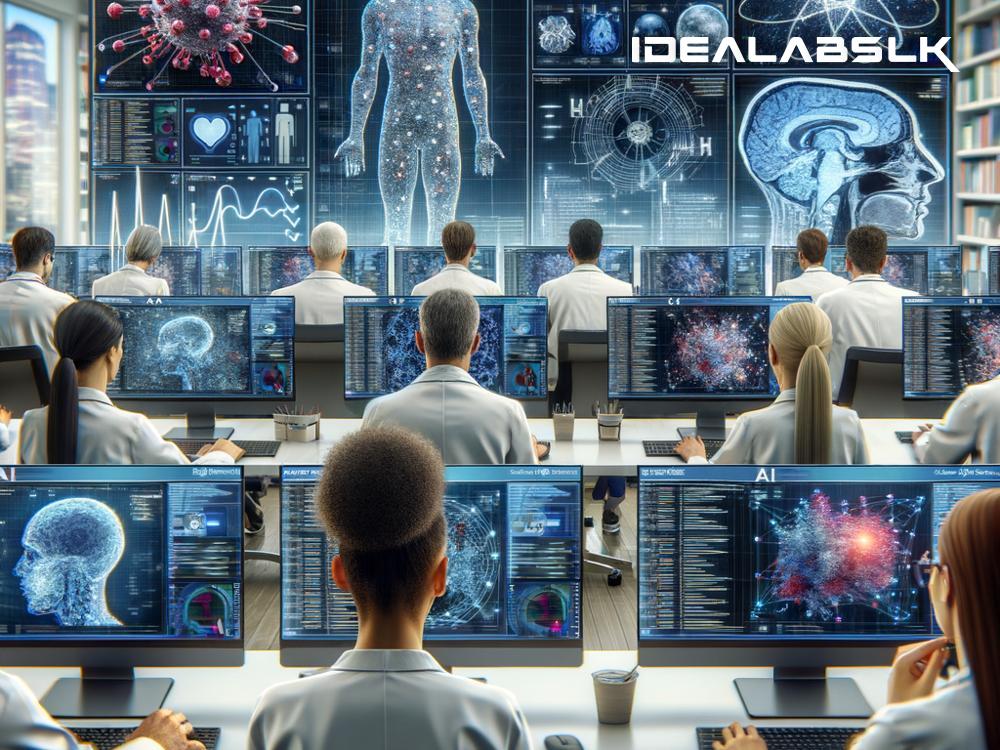Title: How AI is Revolutionizing Cancer Treatment Through Precise Drug Dosing
Cancer is a disease that scares many of us, not just because of its lethal potential but also due to the tough journey patients often endure during treatment. One of the most crucial, yet challenging aspects of cancer treatment is finding the right dose of drugs. Too little and the treatment might not work; too much, and the side effects could be unbearable or even dangerous. But what if there was a way to make this process more precise, more tailored to each individual? Enter Artificial Intelligence (AI). This powerful technology is making strides in the medical field, especially in enhancing the efficiency and accuracy of drug dosing in cancer treatment. Let’s dive into how AI is transforming this crucial aspect of patient care.
Understanding the Challenge
Before we can appreciate the role of AI, it's important to understand the challenge at hand. Each person’s body reacts differently to drugs due to factors like age, weight, genetic makeup, and the presence of other illnesses. Figuring out the right dosage often involves trial and error, which can be time-consuming and risky. Furthermore, many cancer drugs have a narrow 'therapeutic window' - the range of doses which are effective but not harmful. Finding that sweet spot is essential yet difficult.
How AI Comes into Play
AI, with its capacity to analyze vast amounts of data and recognize patterns, offers a solution. It can process information from medical records, scientific literature, and even genetic reports much faster and more accurately than a human. By using this data, AI algorithms can predict how different patients will respond to various dosages of drugs, helping doctors to personalize cancer treatment like never before.
Personalized Medicine
The heart of AI’s promise lies in personalized medicine. It's about moving away from a one-size-fits-all approach to treatment. AI models take into account the individual attributes of each patient, leading to more precise drug dosing. For instance, by analyzing the genetic data of a patient, AI can predict how they metabolize certain drugs, thereby suggesting the optimal dose that minimizes side effects while maximizing effectiveness. This bespoke approach not only improves patient outcomes but also enhances their quality of life during treatment.
Reducing Trial and Error
The trial and error phase in finding the right drug dosage can be greatly reduced with AI. Traditionally, this process could take weeks or even months, during which a patient might not receive effective treatment. AI can shorten this timeline significantly. By accurately predicting the right dosages from the get-go, patients can start benefiting from the treatment much sooner. This is particularly crucial in cancer therapy, where time is often of the essence.
Continuous Learning
One of the most exciting aspects of AI is its ability to learn and improve over time. As more patient data becomes available, AI algorithms can refine their predictions, becoming even more accurate. This continuous learning cycle means that the process of drug dosing will keep getting better, potentially benefiting countless patients in the future. Additionally, AI can help in discovering new drug combinations and dosing strategies that were previously unknown, opening up new frontiers in cancer treatment.
Challenges and Ethical Considerations
While the potential of AI in this domain is immense, there are challenges and ethical considerations. Ensuring the privacy and security of patient data is paramount. Moreover, there’s the question of trust – both doctors and patients need to trust AI-driven recommendations. Clear regulations and transparency about how AI algorithms make decisions are critical steps in building this trust.
Looking Ahead
The role of AI in improving the efficiency and accuracy of drug dosing for cancer treatment is just beginning to unfold. As technology advances and more data becomes available, AI’s impact is expected to grow, bringing us closer to a future where cancer treatment is not only effective but also tailor-made for every patient's unique needs.
In conclusion, AI represents a beacon of hope in the ongoing battle against cancer. It promises to transform a blindly navigated path into a precise, personalized journey, ensuring that patients receive the most effective treatment with the least side effects. By harnessing the power of AI, we're on the verge of making personalized medicine the standard, not the exception, in cancer care. The journey ahead is still long, but the potential for positive change is enormous, marking a significant step forward in the quest to conquer cancer.

